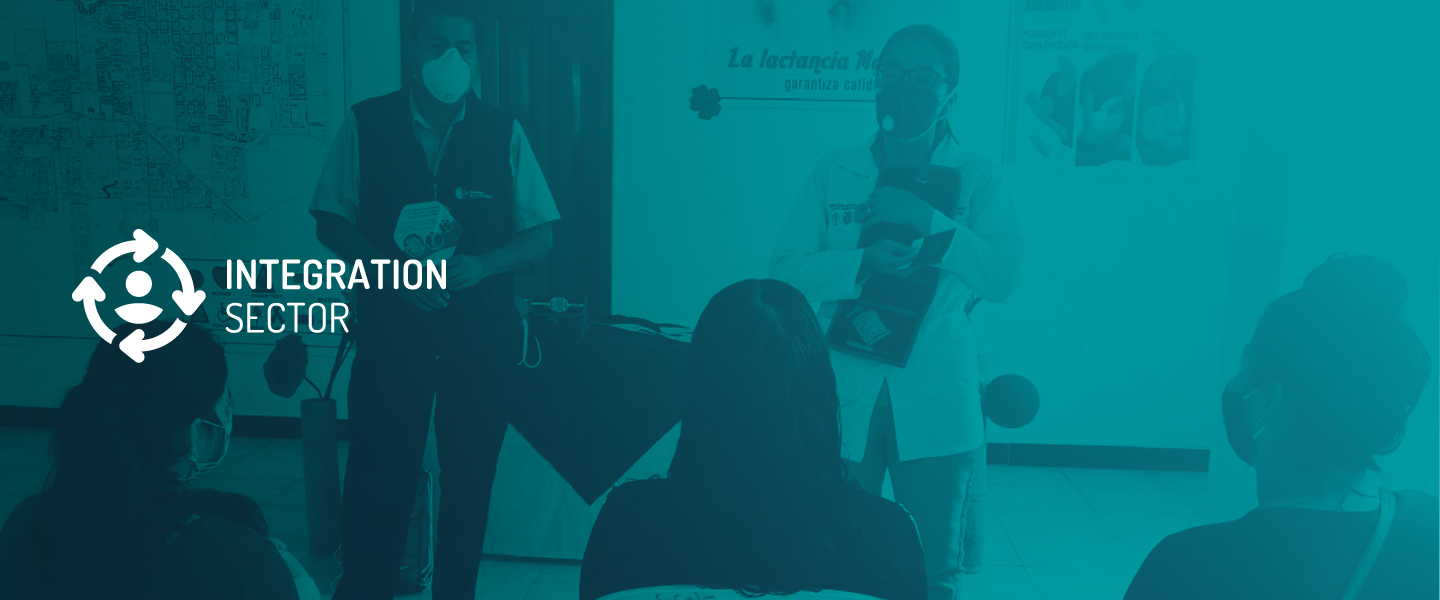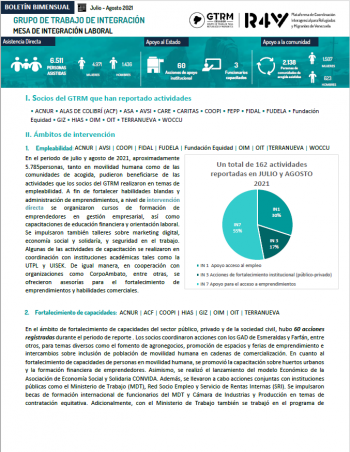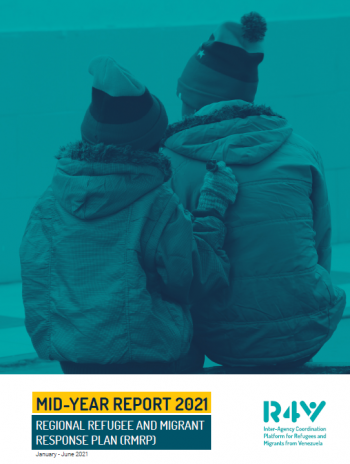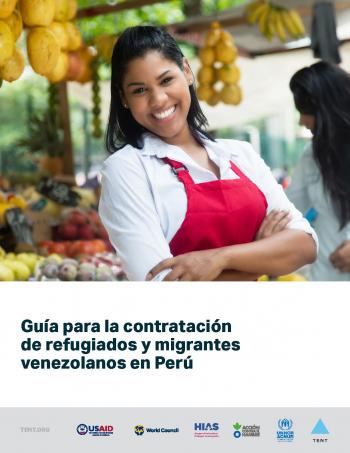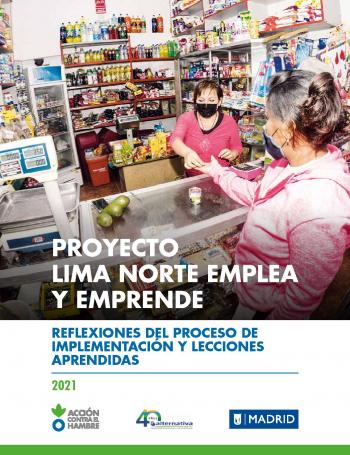Key Figures
What is the Integration Sector?
Priority Needs
The Regional Integration Sector, based on consultations with National and Sub-regional Integration Sectors has identified three priority socio-economic integration needs. These priorities are in line with the pillars of the Regional Socioeconomic Integration Strategy, which has been elaborated in the dual framework of the R4V Platform and the Quito Process:
1. First, regularization processes and their linkages to promote integration. Regular status and documentation were reported as the main concerns of Venezuelan refugees and migrants, affecting access to the formal labour market and essential services, particularly during COVID-19.
2. Second, access to livelihood opportunities, in particular for women and youth. Barriers include local languages in some countries (e.g., Brazil and the Caribbean), costly and bureaucratic processes for the recognition of professional titles, degrees and qualifications, lack of childcare support, inability to access financial services, discrimination, limited (self-) employment and entrepreneurship opportunities, or lack of awareness by employers of labour rights and recruitment processes, as well as the migrant workers’ inclusion in host countries’ social protection systems.
3. Third, social cohesion between refugees and migrants and their host communities. The long-term presence of Venezuelan refugees and migrants, coupled with limited employment opportunities and increasing pressures on essential services and the environment, as well as the spread of false information, have contributed to increasing xenophobia and discrimination, including gender discrimination faced by women and LGBTQI+ people.
Response Strategy
The Integration Sector will support approaches, partnerships and tools to promote the socioeconomic integration of Venezuelan refugees and migrants in a gender, age and diversity-responsive manner, while contributing to overall local sustainable development, through the implementation of the “Regional Strategy for the Socio-Economic Integration of Refugees and Migrants from Venezuela and their Host Communities.”
The Sector’s response will focus on promoting socio-economic integration (during and post-COVID-19), reducing xenophobia and promoting social cohesion, particularly for those affected economically by the COVID-19 pandemic. This includes those a) unemployed or underemployed, b) working in the informal sector, including domestic services, and c) workers not included in social protection systems, with a crosscutting focus on women, youth, marginalized groups (indigenous, persons with specific needs, LGBTQI+ people), GBV survivors and those at risk of GBV or evictions.
- The first response priority aims to link regularization processes with others that promote integration, for example by advocating for access to work in the formal sector and to work-related documentation requirements, such as work permits, and de-facto access to work by sensitizing relevant actors (e.g., ministries of labor, employment agencies and the private sector) on labour rights and the mechanisms for the recruitment of refugees and migrants.
- The second response priority aims to facilitate economic recovery and access to livelihood opportunities for Venezuelan refugees and migrants by identifying and sharing best practices on easing administrative processes for degree and qualifications recognition, alternatives to the apostille and solutions to address high processing costs.
- The third response priority will promote social cohesion, through campaigns and/or sensitization initiatives that strengthen civic coexistence and cultural exchanges and contribute to eradicating sexualized stereotypes of Venezuelan women and girls.
Integration Calendar
| Sun | Mon | Tue | Wed | Thu | Fri | Sat |
|---|---|---|---|---|---|---|
|
31
|
1
|
2
|
3
|
4
|
5
|
6
|
|
|
|
|
|
|
|
|
|
7
|
8
|
9
|
10
|
11
|
12
|
13
|
|
|
|
|
|
|
|
|
|
14
|
15
|
16
|
17
|
18
|
19
|
20
|
|
|
|
|
|
|
|
|
|
21
|
22
|
23
|
24
|
25
|
26
|
27
|
|
|
|
|
|
|
|
|
|
28
|
29
|
30
|
1
|
2
|
3
|
4
|
|
|
|
|
|
|
|
|

